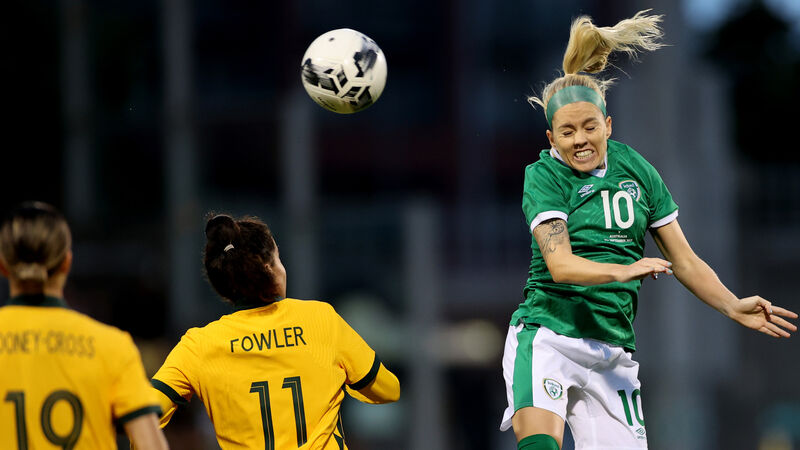John Fallon: FAI miss opportunity to give Ireland deserved Aviva Stadium setting for Sweden clash

Denise O’Sullivan is at the peak of her club career and has become an iconic player for Ireland. Picture: INPHO/James Crombie
Try from €1.50 / week
SUBSCRIBE
Denise O’Sullivan is at the peak of her club career and has become an iconic player for Ireland. Picture: INPHO/James Crombie
When Sweden faced Ireland at Euro 2016, they vowed to erect a “yellow wall” of fans around the Stade de France to buoy Zlatan Ibrahimovic and his side.
Of course, their best-laid plans were scuppered by the opposition outnumbering them so it’s a pity that the strength of the Green Army isn’t being mobilised for the meeting of the women’s teams in a World Cup qualifier on October 21.
Already a subscriber? Sign in
You have reached your article limit.
Annual €130 €80
Best value
Monthly €12€6 / month
Introductory offers for new customers. Annual billed once for first year. Renews at €130. Monthly initial discount (first 3 months) billed monthly, then €12 a month. Ts&Cs apply.
Newsletter
Latest news from the world of sport, along with the best in opinion from our outstanding team of sports writers. and reporters
Newsletter
Latest news from the world of sport, along with the best in opinion from our outstanding team of sports writers. and reporters
Thursday, February 12, 2026 - 6:00 PM
Thursday, February 12, 2026 - 10:00 PM
Thursday, February 12, 2026 - 10:00 PM

Select your favourite newsletters and get the best of Irish Examiner delivered to your inbox
© Examiner Echo Group Limited